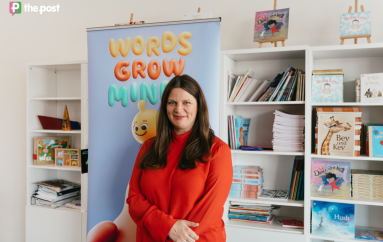SA must have skill to seize tomorrow’s job opportunities
South Australian business and educators must equip today’s young school students with the motivation and training for next-generation jobs and opportunities, writes Jodie van Deventer.

Photo: Tony Lewis/InDaily
South Australia has the nation’s highest unemployment rate yet paradoxically, it also has acute skills shortages predicted to worsen.
There are jobs in industries such as IT, hospitality, project management, farming, aged care and engineering in South Australia that employers are struggling to fill locally, advertising interstate and targeting international expats keen to return home.
It’s likely that a number of factors are at play: a mismatch between what people are studying and opportunities available, the lack of skilled migrants entering our country, an increase in overall demand for workers and the speed in which our economy has transformed from traditional to smart.
But whatever the reason, the pressure is rising to futureproof our workforce – fast.
With the migration system effectively on hold, we have a unique opportunity to redesign the system to better fill genuine skills gaps when borders reopen while at the same time, we need to make sure we’re training the local workforce of the future for the jobs that will be in demand.
With 2030 looming, our defence, space, cyber, high-tech, creative, aged care, disability, mining industries and more are already predicting they’ll need a huge number of high school graduates, apprentices and university graduates to fill a broad range of roles.
The people who will take those jobs in 2030 are currently aged between eight and 12.
So how much do these children know about these opportunities? What about their parents? Teachers? Are they making subject choices aligned with our industries of the future or are they hearing about our high unemployment rate and losing faith?
In 2019, the Commissioner for Children and Young People Helen Connolly asked thousands of kids to describe their hopes and dreams and “getting a good job” came in at number one.
Making sure these young people know the story beyond the unemployment rate – the skills shortage story – is critical.
They need to know, for example, about opportunities in IT with global companies like Accenture creating 2000 roles over five years, PwC opening an onshore delivery centre employing 300 mostly graduates, BGIS establishing its Asia Pacific Internet of Things Command Centre in Adelaide as well as local companies like Chamonix growing and continually on the hunt for new staff.
And they need to know about shortages in roles ranging from project management to contract management, engineering and supply chain management to business and marketing – exciting jobs that are often transferrable across industries from defence, space and mining to construction and creative industries including film and gaming.
Then there are thousands of jobs expected to be created in renewable energy projects this decade while shortages for a wide range of roles in the aged care sector and disability sector continue to be experienced.
Getting these messages to young people needs a whole of community approach.
It’s up to industry to educate the education system on shortages and it’s up to schools, universities and other tertiary institutions to actively and openly work with businesses to ensure our young people have the best chance possible of developing a successful career in our State.
And, as the Commissioner for Children points out, we also need a “source of truth”; a website that’s a one-stop shop where young people can better understand their own strengths and align these with the careers path that will lead them to the jobs of the future.
This is just as important for the mature worker looking to reskill as for the eight year old joining the workforce in 2030.
With an economy that continues to transform and grow, we have a unique opportunity to write a new chapter in South Australia’s fortunes – as long as we get the skills mix right.
Jodie van Deventer is Committee For Adelaide chief executive officer




